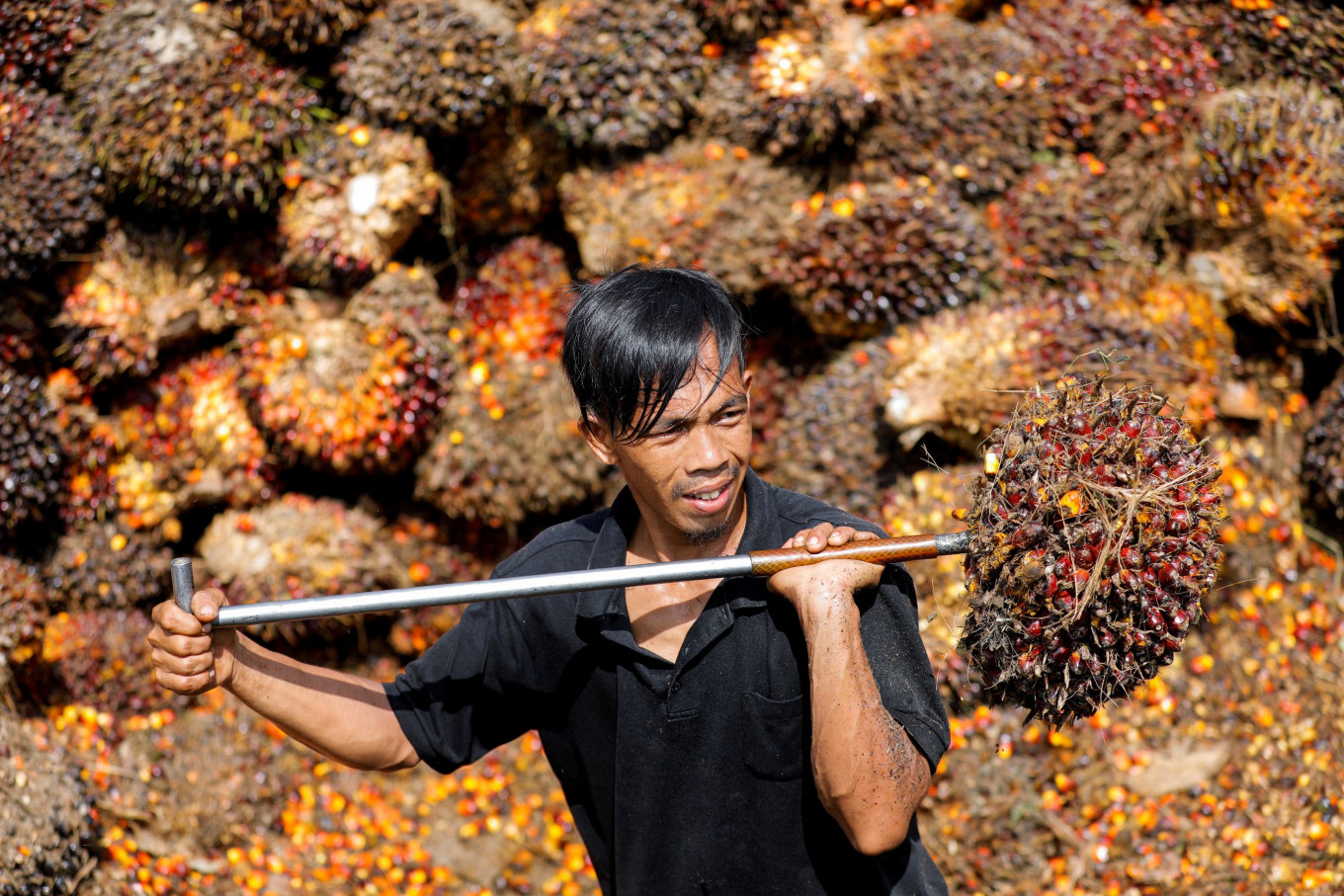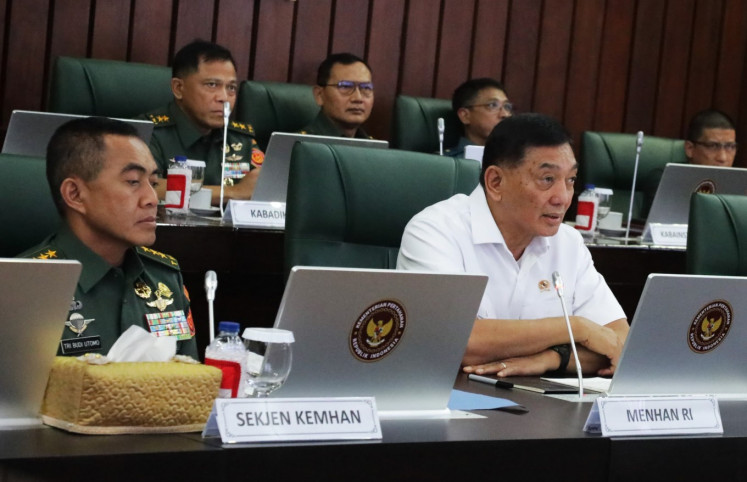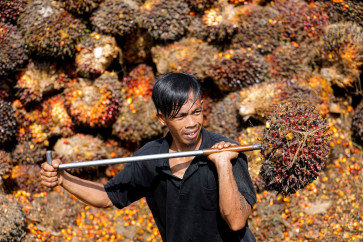Popular Reads
Top Results
Can't find what you're looking for?
View all search resultsPopular Reads
Top Results
Can't find what you're looking for?
View all search resultsSustainability standards for palm oil remain controversial
So unpopular is the RSPO-certified palm oil in Indonesia that only Super Indo, the smallest of the three biggest supermarket chains, puts certified cooking oil on its shelves.
Change text size
Gift Premium Articles
to Anyone
S
ustainability standards for palm oil, the wonder crop that has lifted millions of people in Indonesia out of poverty but which has steadily been blamed by environmental groups in Europe for massive deforestation, were again the central theme of an international conference here early last week.
The forum was the two-day 19th annual flagship meeting of the Kuala Lumpur-based Roundtable on Sustainable Palm Oil (RSPO) in the Mulia Hotel in Senayan, Jakarta, which was attended by around 500 delegates from international and national NGOs, banks, traders and palm oil growing and processing companies from around the world.
Yet not a single senior official of the government addressed the meeting, even though Indonesia is the world’s largest producer of palm oil with an annual output of around 50 million tons, and that commodity is also the third-largest earner of foreign exchange and a major employer, as 40 percent of the estimated 16 million hectares of oil palm plantations is owned by smallholder farmers.
The government apparently did not consider the forum important enough for exchanges of views on ways and means of improving the sustainability of palm oil, even though the international market, notably the European Union, recognizes and accepts only palm oil certified according to the RSPO sustainability standards.
The Indonesian Palm Oil Association (Gapki) quit the RSPO in 2011 and this move was immediately validated by the government by imposing Indonesian Sustainable Palm Oil (ISPO) standards. Malaysia, the second-largest producer, later set up Malaysian Sustainable Palm Oil (MSPO).
Many in the public and private sectors in these two countries often see the RSPO, a multi-stakeholder sustainability forum, as the tool of European and American vegetable oil producers to protect their markets from the highly competitive palm oil.
Transformation for Justice Indonesia (TuK), an Indonesian community rights group, even staged a protest with banners and posters at the conference hall, accusing the RSPO of having turned itself into a legitimizing tool for palm oil companies, which are engaged in deforestation, human rights abuses and land grabbing.



















